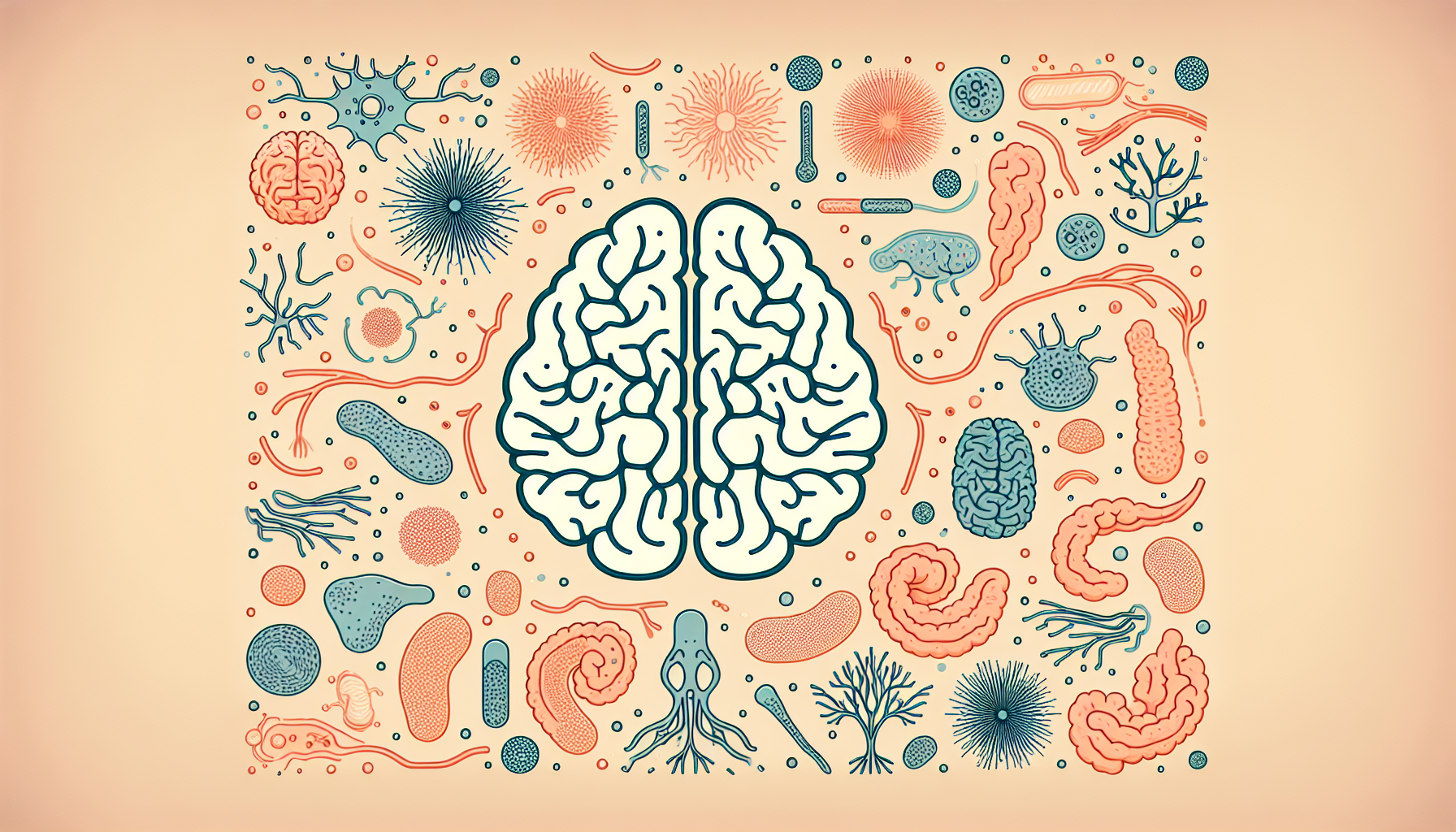The intricate connection between the gut and the brain has been a subject of fascination and study for decades. This bidirectional communication system is known as the gut-brain axis, and it plays a crucial role in maintaining mental wellness. With the rise of research in psychobiotics, neurogastroenterology, and the microbiome, it’s clear that the gut’s health significantly impacts cognitive functions and emotional well-being.
Understanding the Gut-Brain Axis
The gut-brain axis refers to the biochemical signaling that takes place between the gastrointestinal tract and the central nervous system. This includes direct and indirect pathways between cognitive and emotional centers in the brain with peripheral intestinal functions. Recent studies have highlighted the importance of gut microbiota in influencing these interactions. The gut is home to trillions of bacteria, both beneficial and harmful, and the balance of these organisms can affect everything from mood to brain health.
The Role of Microbiota
Gut microbiota affects brain health through several mechanisms. They produce neurotransmitters and short-chain fatty acids that can affect brain function. Additionally, they influence the immune system, which in turn impacts the brain. An imbalance in gut bacteria, known as dysbiosis, has been linked to various neurological and psychiatric disorders, including anxiety, depression, and autism spectrum disorders.
For those seeking to dive deeper into how brain health can be optimized, Avix Health’s article on Optimizing Brain Health Through Holistic Nutrition provides valuable insights into dietary choices that can support the gut-brain axis.
Dietary Influences on the Gut-Brain Axis
What we eat significantly impacts our gut microbiota and, subsequently, our brain health. Diets rich in prebiotics and probiotics can promote a healthy balance of gut bacteria. Prebiotics are fibers that feed the beneficial bacteria in the gut, while probiotics are live bacteria that add to the population of good bacteria in the digestive system.
To further explore the connection between diet and mental health, consider reading on The Importance of Hydration in Maintaining Cognitive Health, which underscores the significance of proper fluid intake for optimal brain functioning.
Stress and the Gut-Brain Axis
Stress can negatively affect gut health, which in turn impacts the brain. The release of stress hormones can alter gut bacteria and increase intestinal permeability, often referred to as ‘leaky gut.’ This can lead to inflammation, which is a risk factor for mental health disorders.
For strategies on managing stress and its impact on the brain, the article Managing Stress for a Healthier Brain offers practical advice and techniques.
The Impact of the Gut on Mental Health
Mental health is profoundly influenced by the state of the gut. Conditions like depression and anxiety have been linked to dysbiosis. Psychobiotics, a type of probiotic, have shown promise in improving symptoms of depression and anxiety by restoring balance to gut bacteria.
Furthermore, a healthy gut may also contribute to the prevention of neurodegenerative diseases. Research suggests that certain gut bacteria can produce neuroprotective compounds, potentially shielding the brain from damage.
To understand the complex relationship between our digestive and mental health, Avix Health’s dedicated section on Digestive Health provides a wealth of information.
External Resources Supporting the Gut-Brain Connection
For those looking to deepen their understanding of the gut-brain axis, there are several high-quality external resources available:
-
Gut Microbiota for Health offers a comprehensive overview of current research on gut microbiota and its importance for overall health, including mental wellness.
-
Psychiatry Advisor’s coverage of the Microbiome provides insights into the latest findings on the microbiome’s impact on mental health conditions such as depression.
-
The International Society for Neurogastroenterology & Motility (ISNM) is a niche resource for those interested in the latest scientific developments on the gut-brain axis from a neurogastroenterology perspective.
-
The American Psychological Association features articles discussing the psychological implications of gut health and how therapists are considering gut bacteria as a part of holistic mental health treatment.
-
Mind-Gut Connection is a platform dedicated to exploring the dialogue between the mind, gut, and its profound impact on mental and physical health.
Incorporating the knowledge from these resources can offer a multi-dimensional understanding of how best to nurture the gut-brain axis for mental wellness.
Conclusion
The exploration of the gut-brain axis opens a new frontier in the pursuit of mental wellness. It is an area where diet, lifestyle, and mental health intersect, providing us with actionable insights into how we can influence our mental well-being through gut health. Recognizing the importance of this connection can lead to more integrative approaches to mental health care, where nutrition, stress management, and mindfulness are as critical as traditional psychological and pharmacological interventions.
By continuing to support research in this field and applying the knowledge we gain from comprehensive resources, both within Avix Health and beyond, we can take proactive steps toward a future where mental wellness is attainable through a harmonious gut-brain partnership.



